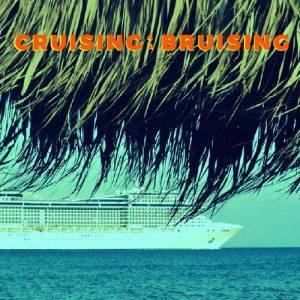
Cruise vacations are supposed to be relaxing and fun. You buy your ticket and pack your bags, board the ship, and from there, everything else is arranged for you. Delicious meals, fun in the sun, and exciting excursions are planned for the next three to seven days.
But many people don’t think about the dark side of cruising law—what happens when something goes wrong while you’re on vacation. In fact, cruise ships present most of the same dangers you’d encounter on land, plus several new ones because you’re isolated on a giant boat in the middle of the ocean. So, from overboard disappearances to freak accidents during excursions, in some ways, cruises offer just as many ways for something to go wrong as they do opportunities for the perfect Instagram shot.
RESOURCE: When a day on the water turns into a day in the water.
The Duty Cruise Ship Owners Owe Passengers
The law that applies to cruise ship claims is inherently complicated because it depends on many factors. In general, maritime law applies while the ship navigates a body of water, while U.S. law will apply while the ship is still in port. However, several notable exceptions to this rule exist.
Regardless of which laws apply, a shipowner is not strictly liable for all injuries that occur while on a cruise. Instead, it can generally be said that a cruise shipowner owes passengers the duty to take steps to prevent the types of ship accidents that a reasonably careful shipowner could anticipate.
This standard resembles premises liability laws in many states. If the boat owner or cruise operator could have predicted and prevented the accident and injuries, they may be legally responsible for any financial, physical, and emotional damages the victim suffered.
For a free legal consultation, call 800-537-8185
Proving Negligence in Your Cruise Ship Accident Case
To prove negligence, an injured cruise passenger must show the four elements are present:
- A duty of care
- Breach of that duty
- Causation
- Harm
Since cruise companies must provide a safe environment for passengers, many known or unreasonable hazards may qualify as a breach of that duty. For example, cruise operators should minimize slipping and tripping hazards. Shipowners also have a legal obligation to keep the boat safe and secure by installing cameras, lights, and other security features.
When those hazards cause an injury accident, the shipowner, operator, or another party may be legally liable for damages. These damages may be recoverable under an insurance claim or personal injury lawsuit.
Necessary Evidence to Prove Negligence
When someone makes a personal injury claim, proving negligence can be as straightforward as showing that the owner didn’t follow existing laws and regulations. For example, the Cruise Vessel Security and Safety Act of 2010 requires all railings to be 42 inches tall. In other cases, injured passengers may need to gather evidence to prove negligence such as:
- Photographs and videos
- Witness accounts
- Expert testimony
Evidence in an injury case will show that the ship owner’s actions were unreasonable and, therefore, negligent. Again, working with a law firm familiar with cruise ship injuries can make identifying and gathering this evidence much more manageable.
Common Types of Cruise Accidents
Cruise ship injuries can take many forms and may not always happen while onboard. Here are some of the most common types of cruise ship accidents.
Slip or Trip and Falls
These accidents happen more often in rough water. Ship captains should take care to warn passengers when they expect rough seas. However, they also occur because of easily remedied hazards such as spills or leaks.
Falling Objects
Items may shift and fall during a voyage, but the boat owner may be responsible if an object falling was foreseeable. Pictures can go a long way toward proving that the object was not safely installed or secured.
Injuries Caused By Ship Employees
Whether intentional or accidental, you could hold a shipowner liable for the actions of its employees because the legal doctrine of respondeat superior applies. The employer is likely vicariously liable if the worker is on the clock and performing work-related tasks when the accident occurs.
Dock Accidents
Cruise operators still must provide a safe, well-maintained ship, gangway, port-of-call docks, and other areas. Still, these incidents bring into question which laws apply when the ship docks at different ports.
Swimming Pool or Slide Accidents
Cruise ship owners are responsible for some pool and diving injuries like a homeowner might be with their backyard pool. For example, diving into a shallow pool can cause serious injuries. Therefore, the shipowner might be negligent if the pool did not display clear “no diving” warnings.
Accidents While on Excursions
You may sustain an injury while visiting a port of call. However, as discussed later, you might find it challenging to pursue a claim due to the blanket waivers you must sign to participate. An attorney who handles cruise ship injuries can help you assess your options.
Medical Malpractice
Although health professionals are on all cruise ships, they generally do not have emergency departments equipped to handle every situation. Moreover, because cruise ship companies typically classify medical professionals as independent contractors and not employees, recovering compensation can be particularly difficult.
Hot Tip: Travel insurance is always a good idea. Many people do not realize that common medical conditions, such as a ruptured appendix, cannot be treated on the ship and may require costly evacuation for treatment.
Navigational Errors and Crashes
These can be the fault of the ship’s captain or the captain of another vessel. For example, you may have a case if you suffered injuries in a collision caused by an intoxicated boat captain.
Assault
Unfortunately, assaults on cruise ships are more common than people realize. You may have difficulty proving who committed the assault, making these claims hard to pursue. However, you could hold the individual accountable for their intentional actions and pursue a case against the cruise company that provided lax security or didn’t screen employees adequately.
Falls Overboard
In these cases, a court will examine what happened to establish liability. Sometimes, intoxication is to blame. Other times, a failure to warn passengers of rough waters can make a shipowner liable. If a passenger does fall overboard, shipowners have a legal duty to initiate search and rescue procedures; a failure to make reasonable efforts can lead to liability.
Click to contact our personal injury lawyers today
Why do Cruise Ship Accidents Differ from Other Personal Injury Claims?
Several quirks about cruise ships make these claims quite different from other accidents. Earlier, we mentioned that it isn’t always immediately clear which law will apply, depending on where the accident happened and what caused the injury.
Another significant difference in cruise ship claims is the contract passengers sign when purchasing a ticket. These contracts may contain provisions that limit or otherwise affect your right to recover if injured.
Forum Selection Clauses
These provisions require passengers to pursue their claim in a particular forum, or state. For cruises, the state is usually Florida if that’s where the cruise originated. New Orleans and Mobile, Alabama, are also common ports for cruise companies. This requirement can prove inconvenient for passengers who travel across the country to board a cruise.
Hot Tip: Although courts usually uphold these clauses as reasonable parts of the contract, some passengers have had luck challenging them. The basis: passengers did not receive the contract in time to cancel their ticket without a cancellation fee. Both parties to a contract must have time to review and agree to it.
Notice Requirements
Maritime law allows three years to make a personal injury claim, while most U.S. states allow at least one year. However, notice requirements in a cruise ship contract may reduce that time to as few as 180 days to give the shipowner notice you will make a claim. This clause is one reason a person injured on a cruise should immediately investigate their rights and consider legal action.
Blanket Waivers
These provisions mean a passenger waives any claim they have before an injury occurs. Often, blanket waivers accompany those exciting excursions offered on cruise ships, protecting the cruise shipowner from liability. This waiver is another reason it’s important to read what you sign. It is essential to know that these waivers are not foolproof, and you could still have a claim despite signing a waiver.
Choice of Law Clauses
This part of the contract means the parties agree that a particular law will apply, such as using Louisiana negligence laws if the cruise originates there. Sometimes, the law that will apply to their claim is not as favorable to passengers as other options that may have been available. For example, Louisiana only offers one year to begin a personal injury lawsuit, while many other states provide more time.
These factors make cruise ship accidents more complicated and challenging to navigate than many other personal injuries. If you think you have a cruise ship claim, it’s a good idea to quickly contact a maritime accident lawyer to help you understand your rights.
Were You Injured in a Cruise Ship Accident?
Contact the Morris Bart law firm for a free case evaluation if you suffered injuries during a cruise. You may qualify to file a claim for medical costs, emotional distress, and further damages.
An experienced cruise ship injury lawyer from the Morris Bart law office will assist you in the evaluation process. We represent clients in Louisiana, Alabama, Mississippi, and Arkansas. Initial consultations are free. Call us today.
Questions?Call 800-537-8185
to find a Morris Bart office near you.





